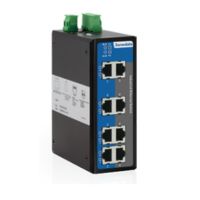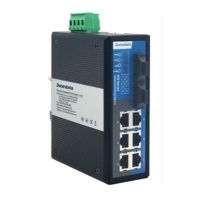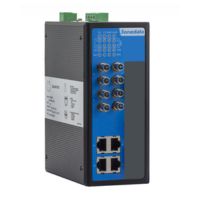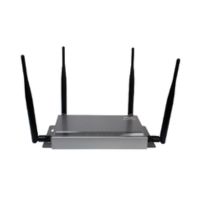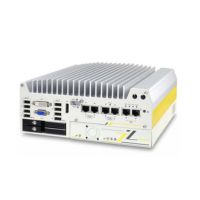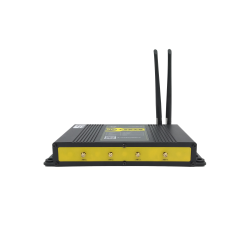Creation of the 5G Network in Poland

5G network, the fifth generation of mobile technology, is one of the most groundbreaking advances in wireless communications. It brings significant improvements in data transmission speeds, low latency and the ability to connect a large number of devices simultaneously. In Poland, the implementation of this technology is seen as a key step towards the digital transformation of the country, aimed at supporting the economy, industry and society.
5G networks - what is it?
5G network what is it?
5G technology is the fifth generation of mobile networks, offering significantly higher data transmission speeds, lower latency and greater capacity compared to its predecessors. 5G enables the development of new services and applications, such as the Internet of Things (IoT), autonomous vehicles, augmented reality (AR), and many others.
Key Benefits of 5G
- Speed: The speed of data transfer in 5G networks can be up to 10 Gbps, which is much faster than 4G networks.
- Low latency: Latency in 5G networks can be as low as 1 ms, which is crucial for applications that require an immediate response, such as autonomous vehicles or remote surgery.
- Ability to support a large number of devices: 5G networks can support up to one million devices per square kilometer, which is essential for the development of IoT.
5G network in Poland
First steps of the 5G network in Poland
Poland, like many other countries, began work on implementing the 5G network at the beginning of the second decade of the 21st century. In 2018, the Office of Electronic Communications (UKE) conducted the first tests of 5G technology in selected cities, such as Warsaw, Wrocław and Łódź. These tests were aimed at assessing the capabilities of 5G technology and identifying potential challenges related to its implementation.
Tenders for 5G frequencies in Poland
One of the key stages of implementing the 5G network in Poland were frequency tenders that took place in 2019-2021. These tenders aimed to allocate appropriate frequency resources to telecommunications operators, necessary to launch 5G services. As a result of these tenders, frequencies in the 700 MHz, 3.4-3.8 GHz and 26 GHz bands were allocatedy allocated to the largest operators in the country, such as Orange, T-Mobile, Plus and Play.
Commercial implementation of the 5G network in Poland
The first commercial 5G services in Poland were launched in 2020. Telecommunications operators such as Play and Plus started offering 5G services in selected cities such as Warsaw, Krakow, Wroclaw and Gdansk. In the following years, the 5G network coverage was gradually expanded to other regions of the country.
Implementation Challenges and Problems
Infrastructure
One of the main challenges related to the implementation of the 5G network in Poland was the need to modernize the existing telecommunications infrastructure.The construction of new base stations and the modernization of existing ones required significant investments from telecommunications operators.
Regulations and security
The implementation of the 5G network also involved the need to comply with strict regulations regarding security and data protection. In Poland, as in other European Union countries, there are strict privacy and data security regulations that must be followed by telecommunications operators.
Social Concerns
An inherent element of implementing new technologies is also social concern about their impact on health and the environment. In the case of 5G, concerns have been raised about the potential impact of electromagnetic radiation on human health and the question arose whether the 5G network is dangerous. In response to these concerns, numerous scientific studies have been conducted that have not unequivocally demonstrated a negative impact of 5G technology on health.
5G Benefits span>
Industry 4.0
One of the key areas where 5G brings benefits is industry. Thanks to 5G capabilities, such as low latency and high throughput, it is possible to implement advanced automation and robotics systems, which contributes to increased production efficiency and cost reduction.
Health
In the health sector, the 5G network enables the development of remote medical care and telemedicine. Thanks to fast and reliable data transmission, it is possible to conduct remote medical consultations, monitor patients remotely and perform complex surgical procedures using robots.
Transportation
5G technology also has a significant impact on the transport sector. Thanks to low latency and high reliability, it is possible to implement autonomous vehicles and advanced traffic management systems, which contributes to increased transport safety and efficiency.
Smart Cities
The 5G network is also a key element in the development of smart cities. Thanks to 5G capabilities, it is possible to implement advanced monitoring and management systems for urban infrastructure, such as intelligent lighting, traffic management, air quality monitoring and many others.
The future of the 5G network in Poland
Further Development and Expansion
Further development and expansion of the 5G network in Poland is expected in the coming years. Telecommunications operators plan to increase the network coverage and implement new services and applications based on 5G technology. It is expected that by 2025, the 5G network will be available in most urban and rural areas in Poland.
Innovations and New Opportunities
5G technology also opens the door to new innovations and opportunities. As the 5G ecosystem evolves, new applications and services emerge that leverage the full potential of this technology. These include smart homes, advanced energy management systems, and the development of new forms of entertainment such as virtual reality (VR) and augmented reality (AR).
5G network in Poland - summary
The implementation of the 5G network in Poland is a key step towards the digital transformation of the country. Thanks to its unique features, such as high speeds, low latency and the ability to support a large number of devices, 5G technology opens up new opportunities for industry, health, transport and smart cities. Despite the challenges associated with implementation, the benefits of the 5G network are enormous, and its future in Poland looks promising.


